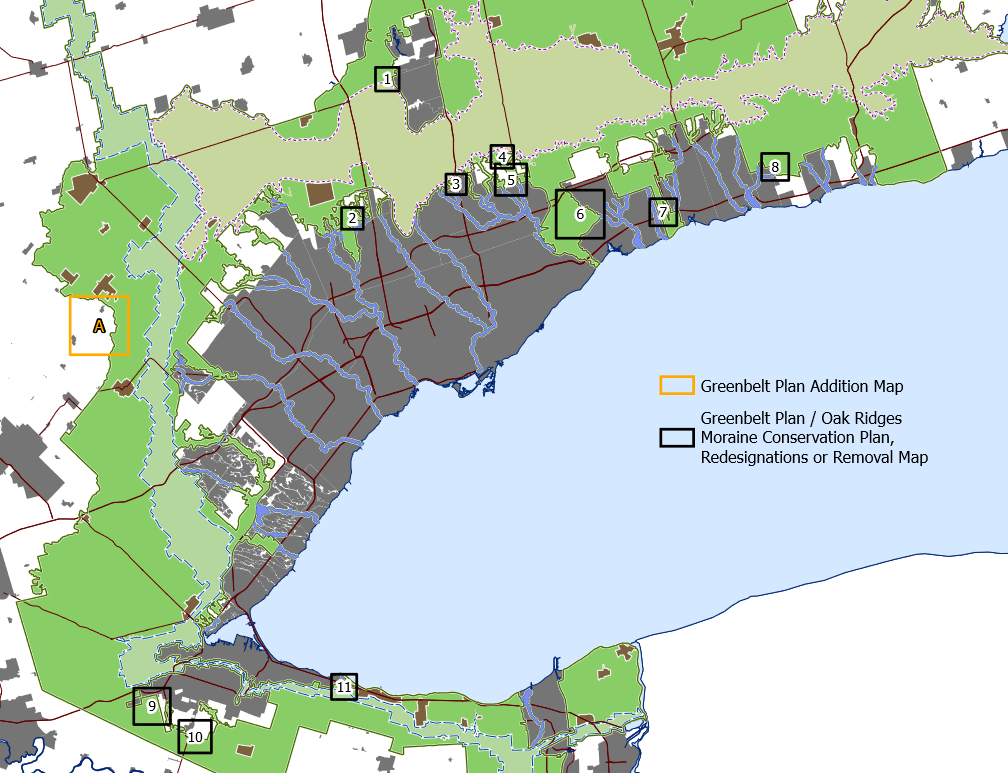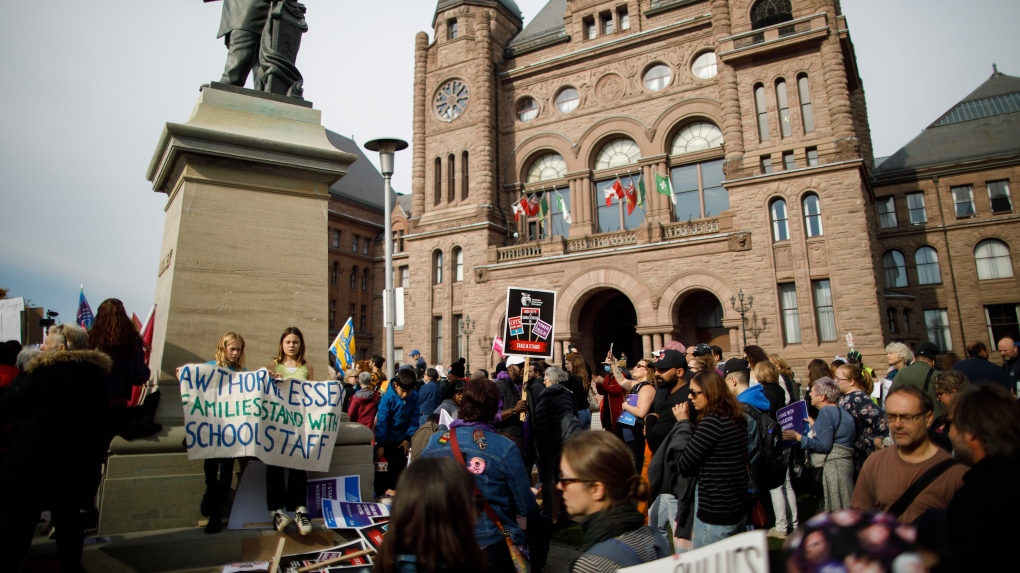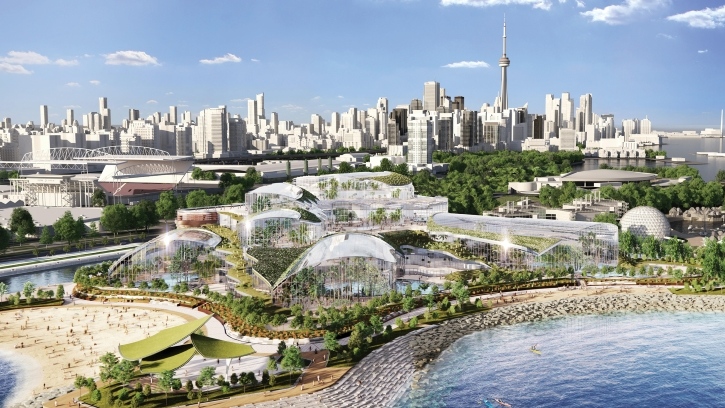5 controversial moments from Doug Ford’s first year after re-election
It’s been one year since Ontario Premier Doug Ford was re-elected with a majority government and while his party appears to be still doing well in the polls, at least one expert says trouble could be on the horizon.
Last June, the Progressive Conservative’s ran on a mandate to “get it done,” promising affordability and infrastructure at a time when residents and businesses were still struggling to recover from the COVID-19 pandemic.
Since then, Ford has been laser-focused on his housing pledge—to build 1.5 million homes by 2031—passing multiple pieces of legislation his government says will help with the crisis.
The PCs gave two big city mayors the power to propose and amend bylaws related to housing and the maintenance of related infrastructure. It removed more 7,000 acres of Greenbelt land and opened it up for development. It put forward a bill that eliminated development fees and overrode municipal zoning in an effort to get more homes built.
Most recently, it is expected to pass a second piece of legislation giving cities the power to expand their borders to allow for more development.
“On the housing file, we are finally starting to see some of the fruits of the labour with respect to housing starts going up,” Government House Leader Paul Calandra told CTV News Toronto.
- Download our app to get local alerts on your device
- Get the latest local updates right to your inbox
It has been a positive year for the Progressive Conservatives, Calandra said, adding that the economy is finally starting to improve and the province’s budget is on track to being balanced.
“Overall, a very, very, very busy and productive first year,” he said. “Obviously, still, some challenges remain, but overall, I'm pretty happy where we've been.”
Those challenges also revolve around housing. Calandra noted that while there has been progress, the province is still not building “as fast as we want.”
However others are concerned that the development is happening too fast—with political analyst Scott Reid saying the Ford government’s form of politics could “hit them hard” in the future.
“I think empirically and objectively, if you take a look at polling and where the government strength stands based on conventional measures, Ford is dominating the Ontario landscape. His opposition continues to be almost split, evenly divided between the NDP and the Liberals,” Reid said.
“I think if you're going to be clear eyed about it, you have to say his position as of today, is as strong as it was on the day that he was re-elected.”
But Reid says it may not last, and that he can see the “seeds of an eventual Ford humbling.”
“I think you can make a reasonable argument that there’s going to be real headaches down the road for the speed with which they operate on these issues and the indifference they pay to how they go about these issues.”
Ford hasn’t faced a lot of political challenge, Reid said, noting that the NDP and Liberals both lost their leaders after the June election.
“That's led them to believe as a government that they can kind of do whatever the hell they want,” he said. “Once you get into that mindset, you're just begging for trouble.”
Here’s a look at 5 those controversial moments from the last year:
GREENBELT INVESTIGATIONS
Prior to being re-elected, Ford promised not to touch the Greenbelt. In November 2022, months after being handed a second mandate, opposition parties were surprised to learn they would be cutting 7,400 acres of protected land and opening it up for development.
At the time, the idea was to build 50,000 homes on those lands while adding 9,400 acres elsewhere to the Greenbelt.
The decision sparked intense criticism from environmental advocates and opposition leaders, who called for both an integrity commissioner and auditor general investigation into the issue.
Multiple media outlets reported that large developers had purchased Greenbelt land since the Progressive Conservative government was first elected in 2018, prompting critics to ask if developers were tipped off about the decision.
One of those investments was made as late as September 2022.
 A map provided by the Ontario government shows what areas of the greenbelt will be removed and added.
A map provided by the Ontario government shows what areas of the greenbelt will be removed and added.
In response to further questions about the timeline, Ford recently called the Greenbelt itself a “scam,” insinuating that a previous Liberal government simply picked the protected land at random.
NDP Leader Marit Stiles told CTV News Toronto that a lot of the legislation pushed forward in the last year that they promised they wouldn’t, including changes to the Greenbelt.
“These were explicit promises that they made just a year ago,” Stiles said. “Since then, they've pushed through legislation that completely blows all of that up … I kind of shake my head sometimes. I can't quite believe it's only been a year because we've seen a government head down such a destructive path in that period.”
HEALTHCARE PRESSURES AND PRIVATE CARE
Another one of those broken promises, Stiles noted, is about the privatization of health care. In May, the PCs passed a bill allowing private clinics to conduct more OHIP-covered surgeries.
Under the bill, both for-profit and not-for-profit clinics will be allowed to conduct cataract surgeries, MRI and CT scans, minimally invasive gynecological surgeries and, eventually, knee and hip replacements under the Ontario Health Insurance Plan.
- What do experts think of Doug Ford's healthcare plan?
More than $60 million has been earmarked to cover procedures conducted in these Independent Health Facilities.
Advocates and opposition parties have argued that this will result in “manipulative upselling,” although the government has said that expert organizations will work with Ontario Health to ensure this doesn’t happen.
This, combined with the government’s appeal of Bill 124, have advocates concerned about staffing shortages.
As of Friday, a number of hospitals north of London say they’ll have to temporarily close their emergency rooms this weekend due to staffing concerns.
NOTWITHSTANDING AND LACK OF PUBLIC CONSULTATION
Back in November, the Ford government used the notwithstanding clause to impose a four-year contract on education support workers a day before they were set to strike.
 CUPE Ontario members and supporters wave signs and flags as they demonstrate outside of the Queen's Park Legislative Building in Toronto, Friday, Nov. 4, 2022. THE CANADIAN PRESS/Cole Burston
CUPE Ontario members and supporters wave signs and flags as they demonstrate outside of the Queen's Park Legislative Building in Toronto, Friday, Nov. 4, 2022. THE CANADIAN PRESS/Cole Burston
The decision resulted in immediate backlash not only by workers but also of other politicians, including Canada’s Prime Minister, who called the decision “disappointing.”
"The suspension of people's rights is something that you should only do in the most exceptional circumstances, and I really hope that all politicians call out the overuse of the notwithstanding clause to suspend people's rights and freedoms,” Justin Trudeau said at the time.
Ford has previously invoked the notwithstanding clause to restore parts of the Election Finances Act in 2021 and threatened to use it in 2018 to slash Toronto city council seats during a municipal election.
Prior to this, the clause, which gives provincial governments the ability to override certain portions of the charter for a five-year time period, had rarely been used in Ontario.
The government defended its use by calling the clause a “tool” that can prevent disruption in the classroom.
Stiles noted the government has also repeatedly chosen to push legislation through quickly, sometimes skipping committee stages in which public consultation can be heard. This occurred first in August, when the province skipped public hearings for legislation that would allow senior hospital patients to be transferred to a nursing home not of their choosing, and then again this week, with the province choosing to fast-track the bill to dissolve the Region of Peel.
“I think it's been generally a very undemocratic path that this government is on, you know rushing through legislation without any consultation,” Stiles said.
HOUSING AND STRONG MAYORS
At the time of his re-election, very little was known about how the PCs were going to build 1.5 million homes over the next 10 years.
In mid-November, the province announced they would be giving the mayors of Toronto and Ottawa “strong mayor powers” to help them build housing. Under the legislation that passed, the mayors can propose and amend bylaws related to provincial priorities with a vote of more than one-third of council rather than a majority.
Opposition parties and city councillors have been vocal with their criticism, calling the legislation an affront to the democratic process. The mayor of Ottawa has refused to use these abilities, while former Toronto Mayor John Tory used his powers to appoint heads of committees before his resignation.
The government also gave itself the power to appoint regional heads of council for certain municipalities. All of these factors, the government said, will help municipalities meet new housing targets.
While many cities have said they can meet the targets, they expressed concerns that some of the fee freezes meant to encourage developers to build will have negative financial ramifications.
The fees often help pay for the cost of municipal services or impacted infrastructure such as roads and transit.
WHATS THE DEAL WITH ONTARIO PLACE?
The Science Centre is moving to Ontario Place.
This news was highly rumoured but just confirmed in April as part of the latest development plans for the waterfront area, which is now set to include 42 acres of public land, an all-season concert stage and a marina with retail and dining opportunities.
Ontario Place has been decommissioned since 2012. A proposal submitted by the provincial government in November includes about 12 acres (48,000 square metres) of accessible public space, as well as a “family-friendly” attraction with a wave pool, waterslides and restaurants.
The development has been described as a “mega spa” with a 22,000 square-metre structure that will connect to the west island as well as a five-level underground parking garage.

The proposal, including moving the Science Centre, has been highly criticized by advocates who want more public space at Ontario Place. They also argue that the museum and educational centre, currently stationed in Flemington Park, brought jobs and tourism to the northern area.
The government has been in the hot seat for the cost of the proposal, which is still unknown.
CTVNews.ca Top Stories

NEW Federal Liberals to pick new leader on March 9 as rules for leadership race are defined
The Liberal Party of Canada have announced leadership race rules late Thursday, including a significant increase in entrance fees and a requirement for voters to be Canadian citizens.
NEW Why four Canadians traded their traditional office space for a life on the road
CTVNews.ca asked Canadians who've embraced the digital nomad lifestyle, or have done so in the past, to share their stories — the challenges, triumphs and everything in between.
NEW Five ways homeowners can protect themselves from contractor fraud
Building or renovating a home can be one of the biggest expenses of one's life. It's costly, and potentially even more expensive if something goes wrong. Between 2022-24, the Better Business Bureau (BBB) received hundreds of complaints about general contractors in Canada.
Thousands of structures destroyed in L.A. County's most destructive fire
A series of wildfires tore through densely populated parts of the Los Angeles, Calif. area. Five people have been reported dead. U.S. Gov. Gavin Newsom said thousands of resources have been deployed to contain the fires.
Is the Hollywood sign on fire?
As fires scorch Los Angeles, fake images and videos of a burning Hollywood sign have circulated on social media.
Ex-Trump adviser says Canada in 'difficult position' amid tariff threat, Trudeau resignation
In the face of a potential tariff war, U.S. president-elect Donald Trump's former national security adviser John Bolton says 'Canada is in a difficult position' in part due to Prime Minister Justin Trudeau's resignation and a looming general election.
PM Trudeau says he thinks Trump is using talk of Canada becoming 51st state to distract from tariff impact
Prime Minister Justin Trudeau says he thinks U.S. president-elect Donald Trump is drumming up drama on Canadian statehood to detract from tariff talks.
Canadian travellers now require an ETA to enter U.K. Here's what to know
Starting Jan. 8, Canadians visiting the U.K. for short trips will need to secure an Electronic Travel Authorization (ETA) before boarding their flight, according to regulations set out by the U.K. government.
Poilievre says the next Canadian election will be about the carbon price
Pierre Poilievre returned to Ottawa on Thursday after the holidays with a familiar demand for Justin Trudeau: call a carbon-tax election.
































